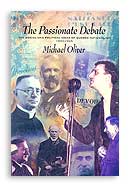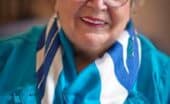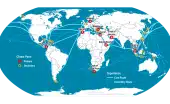Molly Minturn - My family is heartbroken to share that my father died in surgery on Monday, Feb. 10. It…
Michael Oliver, O.C. 1925-2004 R.I.P.
Written by Diana Thebaud Nicholson // September 30, 2004 // Absent Friends // Comments Off on Michael Oliver, O.C. 1925-2004 R.I.P.
By Alan Hustak
Dr. Michael Oliver O.C. 1925-2004
Dr. Michael Oliver O.C., the Montreal academic who was the founding president of the New Democratic Party was a spirited idealist and economic socialist who worked to bridge the divide between French and English Canada.
The former academic vice-Principal of McGill University in Montreal and President of Carleton University in Ottawa, Oliver died Wednesday on the McGill campus moments after giving a presentation on trade unions in Canadian politics as part of a course he was taking at the Institute On Learning and Retirement.
He was 79.
His funeral will be held (Sunday, Oct 3) at St. Thomas’ Anglican Church 6897 Somerled Ave. in N.D.G.
Oliver was research director for the Royal Commission on Bilingualism and Biculturalism in the 1960s, founding president of the Canadian Centre for Policy Alternatives, and founding director of the Quebec studies program at McGill in 1963.
He also spent four years as professor of politics at the University of Papua, New Guinea.
“He was a key player in building a new and modern relationship between a whole series of generations of francophones and anglophones,” John Ralston Saul, one of Oliver’s former students and today the spouse of Canada’s Governor-General said yesterday.
“If Canada works, it’s because Michael Oliver and a few others figured out how we could live together in the future without forgetting the past. And everything he did, he did with a genial intelligence which disguised the ethical steel that lay just behind.”
Michael Kelway Oliver O.C., the son of an Anglican priest, was born in North Bay, Ont. on Feb 2, 1925. His father moved to Montreal to become rector at St. Steven’s in Lachine and then spend 28 years at St. Matthias’ Church in Westmount where Oliver was raised. During the Second World War Oliver served with the 18th battery 2nd Canadian Anti Tank regiment. When the war ended he enrolled in McGill University where he obtained his arts degree in 1948. He won a scholarship to study at the Sorbonne in Paris for a year and returned to McGill for his M.A.in 1950 and his PHd. in 1957.
He taught at United College in Winnipeg and at Laval University before joining McGill as a political science professor in 1957.
Oliver was among the first to anticipate the rise of Quebec nationalism a decade before the Parti Quebecois was started, presciently warning as early as 1957 that a nationalist movement in French Canada was afoot “which will affect the Roman Catholic Church and may have a profound effect on Canadian politics of the future.”
When the New Democratic Party was founded Oliver helped shape the party’s policy and in 1961 was unanimously elected the NDP’s first president. “He was a gentle, intellectual giant, a true leader, a founding father of the party who helped pull together diverse perspectives,” federal NDP leader Jack Layton, who monitored Oliver’s classes at McGill, said in a telephone interview from Vancouver. “He had a profound understanding of the social democratic values that motivate us and that should motivate us as a country. He had a boundless optimism about this country.”
Oliver became McGill’s academic vice-president in 1966.
In 1972 he was appointed president of Carleton University in Ottawa, a position he held for seven years.
“He was more idealistic than most university presidents, and initially his experience at Carlton wasn’t altogether rosy,” recalled retired Carleton history professor David Farr, who served on the selection committee that hired Oliver. “I was impressed by his interest in universities in the third world, and what could be done to assist them. He had a deep commitment to higher education and academic opportunities in the Third World, and because of it, he was a source of inspiration. He had a broad range of experience, and was very much concerned with the deep social trends in Canadian society.”
Between 1993 and 1996 Oliver was president of the United Nations Association in Canada. The charitable organizations promotes the work of the U.N. in Canada.
“He was a dedicated and helpful member who contributed to the association by his hard work and by his enthusiasm,” said Geoffrey Pearson, the organization’s past president.
Oliver’s wife Joan Nelson a biochemist and psychologist whom he married in 1948, died in 2001.
They had five children, three sons and two daughters.
© The Gazette (Montreal) 2004
More on Wednesday-Night.com
 The Passionate Debate: The Social and Political Ideas of Quebec Nationalism 1920-1945
The Passionate Debate: The Social and Political Ideas of Quebec Nationalism 1920-1945
by Michael Oliver
“An in-depth study of Quebec nationalism. It offers an insight to the thinking of an open-minded, left-wing, English-Canadian activist as he tried to come to terms with Quebec nationalist thinking.”
– Canadian Journal of Political Science



